-
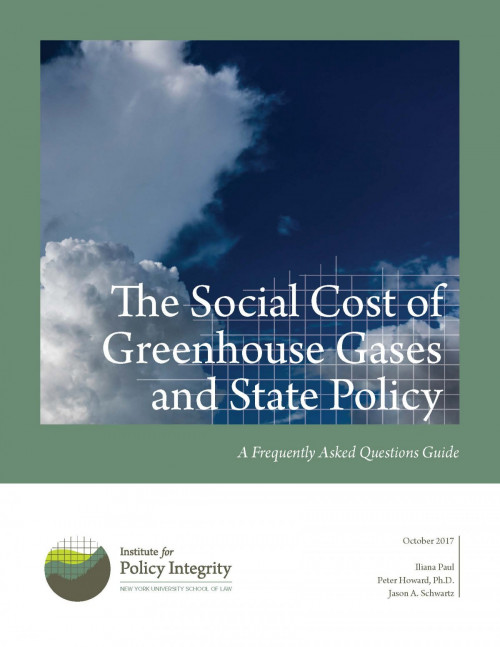
The Social Cost of Greenhouse Gases and State Policy
A Frequently Asked Questions Guide
States can benefit from using the social cost of greenhouse gases to aid in making rational policy decisions in a transparent manner. Many states are already using these metrics in their decisionmaking. This report provides information on several issues related to the social cost of greenhouse gases, including discount rates, time horizons, and the global nature of the estimate.
-
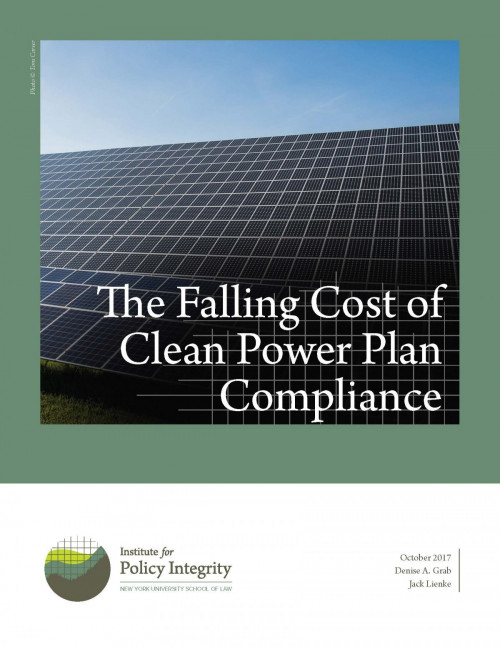
The Falling Cost of Clean Power Plan Compliance
In 2015, the U.S. Environmental Protection Agency (EPA) released the Clean Power Plan, a Clean Air Act rule designed to address the threat of climate change by cutting carbon dioxide emissions from fossil fuel-fired power plants. As part of that rulemaking, the agency prepared an estimate of compliance costs, which it found would be far outweighed by the rule’s climate and health benefits. Since that time, changes in the electric sector have made it even cheaper to meet the rule’s emission targets than EPA anticipated. This report summarizes the findings of EPA’s 2015 Regulatory Impact Analysis; discusses subsequent market and policy developments that have lowered the cost of complying with the Clean Power Plan; and surveys more recent analyses by independent groups, which have estimated substantially lower compliance costs than EPA did.
-
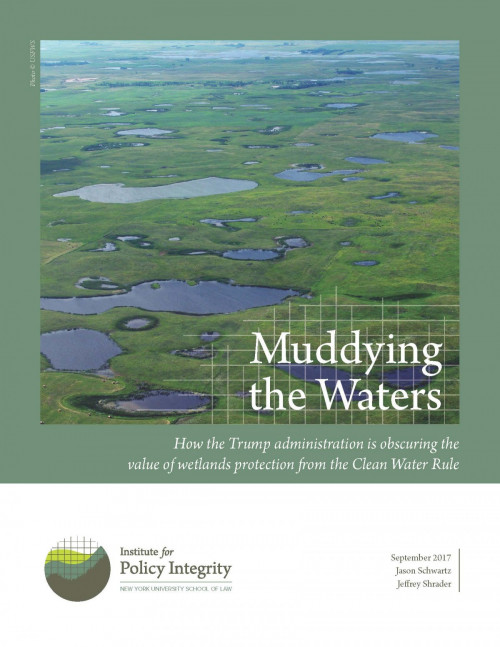
Muddying the Waters
How the Trump administration is obscuring the value of wetlands protection from the Clean Water Rule
In 2015, the Environmental Protection Agency and Army Corps of Engineers revised the definition of the “waters of the United States” as part of the Clean Water Rule. This revised definition was expected to increase the wetland area subject to protection under the Clean Water Act, and an economic analysis conducted by the agencies at the time showed that the benefits of the rule would substantially outweigh the costs. Under the Trump administration, the agencies now propose to repeal the 2015 Clean Water Rule and have issued a revised economic analysis in support of that decision. In the new analysis, the agencies now claim that the majority of the benefits in the 2015 analysis cannot be quantified, making it appear that the Clean Water Rule is not cost-benefit justified. The agencies have violated many of their own requirements for conducting economic analysis to arrive at this conclusion, and a more comprehensive assessment of the evidence shows that the 2015 Clean Water Rule is still cost-benefit justified. Repealing the 2015 Rule would forgo substantial environmental and economic benefits.
-
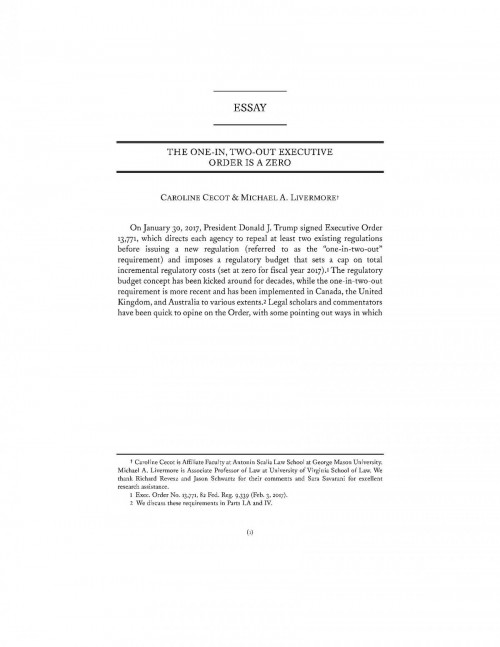
The One‐In, Two‐Out Executive Order Is a Zero
President Trump’s Executive Order 13,771 directs each agency to repeal at least two existing regulations before issuing a new one and imposes a regulatory budget that sets a cap on total incremental regulatory costs. In this essay, Caroline Cecot and Michael Livermore evaluate the Order against three priorities that have been adopted by prior administrations or promoted by scholars, commentators, or interest groups: (1) increasing net benefits of regulation, (2) decreasing regulatory burdens, and (3) increasing presidential control over agencies. They also compare the Order against the regulatory reform efforts in other countries.
The authors conclude that the Order is unlikely to achieve any of these goals without significant changes. They urge President Trump to scrap the Order and instead ensure that agencies engage in reasonable retrospective review of existing regulations and that the Office of Information and Regulatory Affairs has sufficient staff to oversee agency decisionmaking, among other sensible reforms.
-
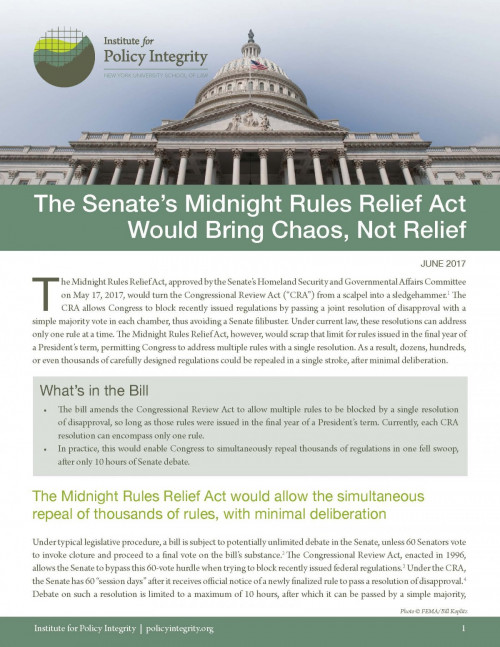
The Senate’s Midnight Rules Relief Act Would Bring Chaos, Not Relief
The Midnight Rules Relief Act, approved by the Senate’s Homeland Security and Governmental Affairs Committee on May 17, 2017, would turn the Congressional Review Act (“CRA”) from a scalpel into a sledgehammer. Our issue brief describes how this shift in regulatory policy would allow for quick repeals of public safeguards after only 10 hours of Senate debate and prevent similar rules from being enacted in the future.
Viewing all publications in Government Transparency
